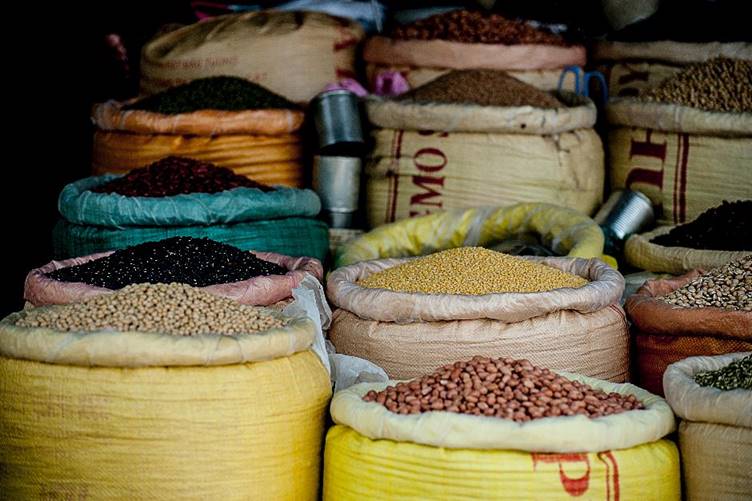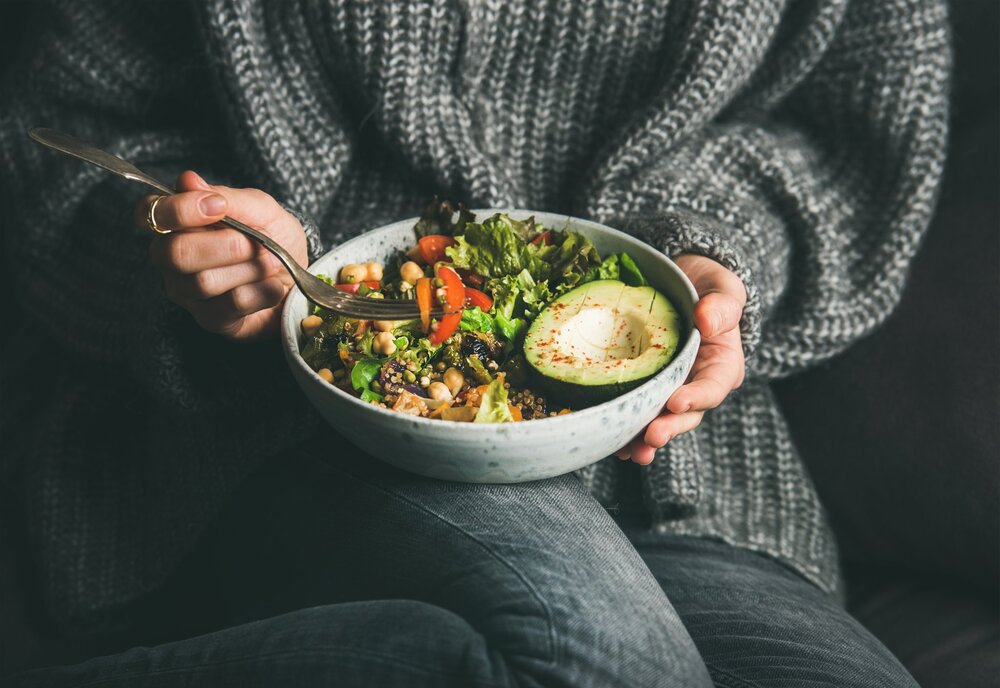Plant-based diets are nothing new but many people are still trying to understand whether it is the right choice for them.
As we enter transformation season, Charlotte Harrison, Nutritionist, Spoon Guru, a unique food search & discovery engine that caters for individuals with specific dietary requirements or health objectives, explains the pros and cons.
PROS
A plant-based diet may lower your blood pressure
A CARDIA hypertension sub-study of 4304 subjects revealed a dose-dependent inverse relationship between plant-based food consumption, including fruits, whole grains, and nuts, and blood pressure. The opposite relationship was found, however, with meat intake.
It may increase your fibre intake
A plant-based diet means that generally, consumers are going to consume more fruits, vegetables, pulses and legumes which naturally contain high levels of fibre. This is great as high-fibre diets tend to keep people fuller for longer.
A plant-based diet may lower your chances of developing type 2 diabetes
A 2006 study found that a plant-based diet, filled with high-quality plant foods (such as a wide variety of fruits and vegetables, pulses and legumes) reduced the chances of developing type 2 diabetes by 34%.
Switching to a plant-based diet leads consumers to discover new foods.
Being plant-based, one’s fruit and vegetable knowledge may expand. Meals will become based around the vegetable rather than the meat so it’s great to start trying new foods and discover something new.
Better for the environment
If you eat about 100g of meat a day, changing to a plant-based diet can shrink your carbon footprint by up to 60%.
This saves an annual equivalent of 1.5 tonnes of carbon dioxide. Even by halving your meat intake to 50g you can cut down your footprint by 35%.

CONS
While there are not many cons, switching to a plant-based diet does come with a few things to look out for but these are easily corrected.
High salt and sugar
Some pre-made plant-based products e.g. plant burgers or plant nuggets may contain more salt and sugar. A survey conducted by Action on Salt found that nearly two in five plant-based meals sold in the UK were found to contain more than 3g of salt per 100g, which is classed as high salt.
Nutrient reduction
If someone is going to swap from a full omnivorous diet (both plant and animal-based diet) they may miss out on some key nutrients.
For example, a steak is full of iron, selenium, vitamin B12 niacin and zinc, plus a steak also has a high bioavailability (the nutrients enter the body easily and quickly). If you wanted to get approximately the same amount of nutrients as a steak in plant form then your bowl may look very different.
A wide variety and mix of vegetables, beans, pulses, seeds and nuts so you get a combination of all the nutrients you need.
Can be more expensive
This all depends on what one buys. A lot of vegan products out there can be more expensive, such as plant-based burgers or nuggets however if you have time, plant-based burgers are easy to make and there are lots of recipes out there.
Also, lots of fresh fruits and vegetables don’t last very long in the fridge but you can solve this by freezing or buying frozen. Your shop will last longer and still contain pretty much the same amount of nutrients as fresh fruits and vegetables.
HOW DOES IT DIFFER FROM ‘VEGAN’?
Vegan and plant-based diets are very difficult to distinguish. One of the main differences is being vegan is a lifestyle rather than a diet. Normally, vegans won’t buy things like leather as this comes from animal skin whereas plant-based diets focus on the food and diet.
Vegan diets tend to also be slightly stricter with additives such as riboflavin. Riboflavin can come from egg or milk sources, so unless there’s a vegan suitable statement on the packet then most vegans will probably avoid this. Plant-based eating has a bit more flexibility around some of the food additives.
MISSING NUTRIENTS/MINERALS/VITAMINS YOU NEED TO BE CAREFUL TO INCLUDE
The main vitamins which we should be watching out for which a plant-based diet is hard to get enough of are vitamin D, B12, iron and omega-3.
Vitamin D we normally get from the sun however in colder parts of the world and on darker evenings, vitamin D becomes harder to get. Foods which contain vitamin D include those fortified such as milks or cereal and mushrooms. Vitamin D is great for the immune system. Consider supplementing during the Winter months.
Vitamin B12 is a water-soluble vitamin which is involved with every cell in the body. So B12 is important to life which every plant-based eater should be aware of. B12 deficiency is very common in vegans/ plant-based eaters, with about 92% of them being deficient in this vitamin as it is usually found in the likes of salmon, liver, clams, etc.
Iron rich foods are usually associated with red meats. However, lentils, tofu, cashew nuts and chia seeds if following a plant-based diet. Iron is important for blood formation, in particular haemoglobin production. However, iron cannot be absorbed unless there is plenty of vitamin C to help.
Omega-3 is usually found in fish but can be found in walnuts, chia seeds and flax seeds.
CAN A PLANT-BASED DIET SAFELY AID WEIGHT LOSS?
In theory, a plant-based diet can aid weight loss as typically you are consuming less saturated fats, normally consumed from meats. One study found that 65 overweight adults on a plant-based diet for one year, lost an average of 4.2kg.
Another reason why plant foods aid weight loss is most vegetables have a low glycemic index which means they are digested more slowly and high fibre in the fruits and vegetables keeps you fuller for longer.
However, a reason for going plant-based shouldn’t be purely to lose weight. There are many other benefits to being plant-based.
A top tip for transitioning to a more plant-based diet is to try going meat-free for one day of the week.
If you enjoy being meat-free and plant-based then keep it up.





